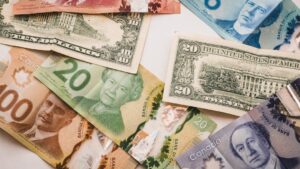Understanding Forex Forwards: How They Work and Why They Matter
In the world of foreign exchange trading, there are various financial instruments that traders can utilize to manage their currency risk. One such instrument is a forex forward contract. Forex forwards play a crucial role in hedging currency risk and are widely used by corporations, financial institutions, and even individual investors. In this article, we will explore what forex forwards are, how they work, and why they matter.
What are Forex Forwards?
A forex forward is a contractual agreement between two parties to exchange a specified amount of one currency for another at a predetermined future date and exchange rate. Unlike spot transactions, which involve the immediate exchange of currencies, forward contracts allow participants to lock in the exchange rate for future settlement.
How do Forex Forwards Work?
To understand how forex forwards work, let’s consider an example. Suppose a US-based company plans to import goods from Europe six months from now, and it expects to pay €100,000 for those goods. However, due to currency fluctuations, the company is concerned that the euro may appreciate against the US dollar, increasing the cost of the imported goods.
To mitigate this risk, the company decides to enter into a forex forward contract with a bank. The company agrees to buy €100,000 from the bank at a fixed exchange rate of 1.20 dollars per euro in six months. This means that regardless of the actual exchange rate at the time of settlement, the company will only pay $120,000 for the €100,000.
Why do Forex Forwards Matter?
Forex forwards matter for several reasons, particularly in managing currency risk:
1. Hedging: Forex forwards allow businesses to hedge their currency exposure, protecting them from unexpected exchange rate movements. By locking in the exchange rate through a forward contract, businesses can budget and plan their future cash flows with greater certainty.
2. Speculation: Forex forwards are not limited to hedging purposes; they can also be used for speculative purposes. Traders who anticipate future currency movements can enter into forward contracts to capitalize on their predictions. However, speculation comes with a higher level of risk and should be approached with caution.
3. Customization: Forex forwards can be customized to meet specific needs. The contract’s size, maturity date, and exchange rate can all be tailored to suit the participants’ requirements. This flexibility makes forex forwards suitable for a wide range of participants, from multinational corporations to individual investors.
4. Non-Standard Currencies: Forex forwards provide a means to trade in currencies that may not be easily accessible in the spot market. For example, a company operating in a country with capital controls may find it challenging to convert its local currency into a more stable currency. By using a forward contract, the company can secure the desired currency at a future date.
5. Long-Term Planning: Forex forwards are particularly useful for long-term planning. Businesses with a multi-year investment horizon can enter into forward contracts to mitigate their currency risk over an extended period. This allows them to focus on their core operations without being excessively affected by exchange rate fluctuations.
In conclusion, forex forwards are essential tools in managing currency risk. By providing a means to lock in exchange rates for future settlement, they enable businesses and investors to hedge against adverse currency movements. Whether used for hedging or speculation, forex forwards offer participants flexibility and customization options. Understanding how forex forwards work and why they matter is crucial for anyone involved in foreign exchange trading.






